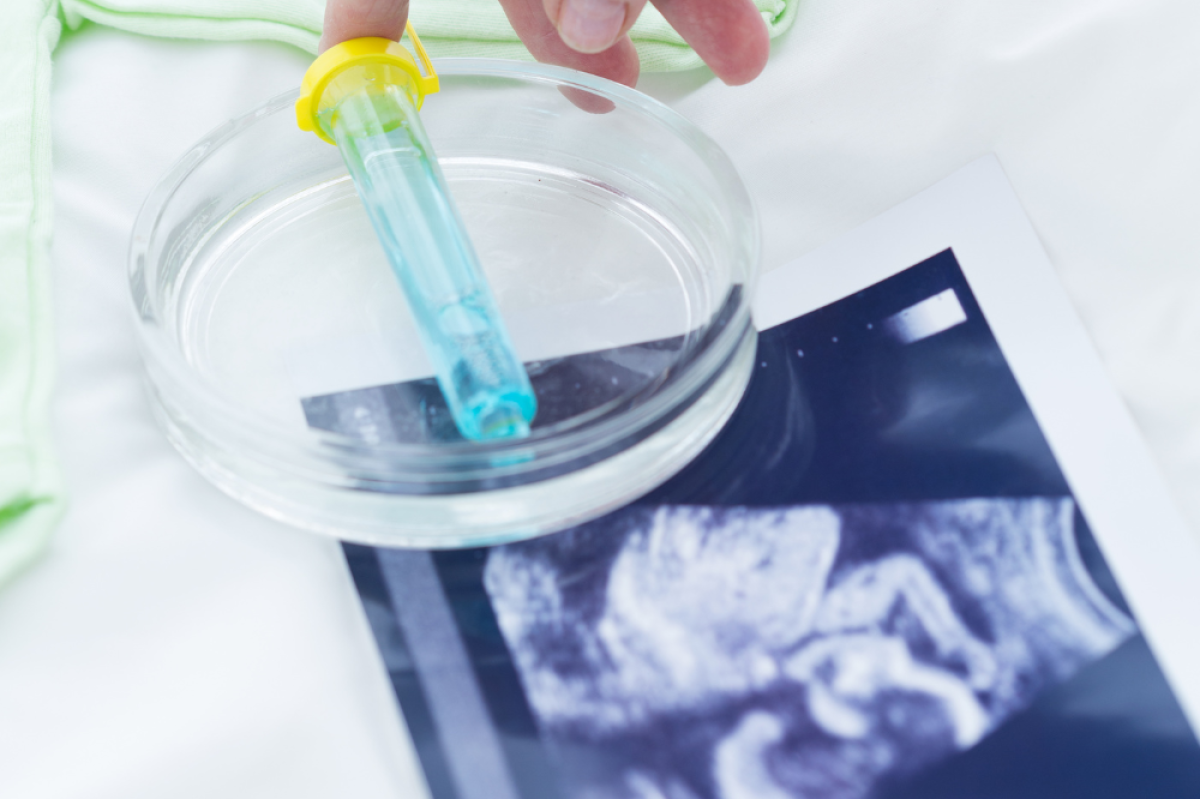How Long Does Fertility Treatment Take?

Couples who spend months trying to conceive and are repeatedly disappointed often feel frustrated and overwhelmed. A combination of factors can make it difficult to get pregnant, but fortunately, there are treatment options that may improve your chances of getting pregnant. The team at the Center for Reproductive Health understands that the decision to pursue fertility treatment can be nerve-wracking and we offer compassionate support throughout the process. One of the most common questions we are asked is “How long does fertility treatment take?”
Initial Consultation
When you decide to pursue fertility treatment, the first thing that will happen is an initial consultation. At the consultation, the medical history of both partners is reviewed and tests or procedures may be scheduled to help identify factors that could be affecting your ability to conceive. Tests that may be scheduled include blood work, an ultrasound, semen analysis, or a uterine evaluation.
Options for fertility treatment are discussed. The total time needed for fertility treatment can vary depending on what’s causing fertility issues. Medication may be used to stimulate ovulation. If your uterus has any abnormalities such as endometriosis, fibroids, or ovarian cysts, surgery may be recommended to correct the abnormality before moving forward with fertility treatment.
In Vitro Fertilization
In vitro fertilization (IVF) is the most common form of Assisted Reproductive Technology (ART). There is a series of steps involved in IVF that takes about six to eight weeks from the time you have your consultation to the time the eggs are implanted. The total time needed can vary from one patient to the next.
Once lab tests have been completed and have provided a clearer picture, you may begin fertility medication. The ovaries may be stimulated with injectable hormones. This is typically done over a seven to nine-day period. After this time has passed, eggs within follicles are triggered to mature and are harvested during a minor surgical procedure. Eggs are then mixed with sperm and cultured for three to five days as they develop into embryos, and one or more embryos are implanted into the uterus.
The number of embryos implanted depends on your age and your preference. If there are problems with your own eggs, donor eggs, sperm or embryos can be implanted. Your doctor may recommend progesterone supplements to make the lining of your uterus better prepared for implantation.
Approximately twelve days after the egg is implanted, a pregnancy test is done. If it’s positive, it’s repeated a week later. If the second test is also positive, an ultrasound is scheduled. More than one cycle of IVF may be needed to achieve pregnancy.
Does Fertility Treatment Always Work?
Not every one that receives fertility treatment ends up with a viable pregnancy. The chances of being successful with IVF treatment depend on several factors including the age of the mother, her reproductive history, and lifestyle factors.
To find out more, contact the caring team at the Center for Reproductive Health. While there can’t be any guarantee that fertility treatment will be successful, we are committed to providing the most advanced treatment options available to help maximize your chances of having a baby.
Eliran Mor, MD
Reproductive Endocrinologist located in Encino, Valencia & West Hollywood, CA
FAQ
What does a reproductive endocrinologist and infertility specialist do?
Reproductive endocrinology and Infertility is a sub-specialty of Obstetrics and Gynecology. In addition to managing medical and surgical treatment of disorders of the female reproductive tract, reproductive endocrinologist and infertility (REI) specialists undergo additional years of training to provide fertility treatments using assisted reproductive technology (ART) such as in vitro fertilization.
Reproductive endocrinologists receive board certification by the American Board of Obstetrics and Gynecology in both Obstetrics and Gynecology and Reproductive Endocrinology and Infertility.
When should I see an REI specialist?
In general, patients should consider consulting with an REI specialist after one year of trying unsuccessfully to achieve pregnancy. The chance of conceiving every month is around 20%, therefore after a full year of trying approximately 15% of couples will still not have achieved a pregnancy.
However, if a woman is over the age of 35 it would be reasonable to see a fertility specialist earlier, typically after 6 months of trying.
Other candidates to seek earlier treatment are women who have irregular menses, endometriosis, fibroids, polycystic ovary syndrome (PCOS), women who have had 2 or more miscarriages, or problems with the fallopian tubes (prior ectopic pregnancy).
What are the reasons we are having trouble conceiving?
Approximately 1/3 of the time cause for infertility is a female factor, 1/3 of the time a male factor, and the remaining 1/3 a couples’ factor.
At CCRH, we emphasize the importance of establishing a correct diagnosis. Both partners undergo a comprehensive evaluation including a medical history and physical exam.
Furthremore, the woman’s ovarian reserve is assessed with a pelvic ultrasound and a hormonal profile. A hysterosalpingogram (HSG) will confirm fallopian tube patency and the uterine cavity is free of intracavitary lesions. A semen analysis is also obtained to evaluate for concentration, motility, and morphology of the sperm.
Additional work up is then individualized to direct the best possible treatment option for each couple.
What is IVF? What is the process like?
In vitro fertilization (IVF) is the process that involves fertilization of an egg outside of a woman’s body.
The process starts with fertility drugs prescribed to help stimulate egg development. In your natural cycle, your body is only able to grow one dominant egg, but with stimulation medication we can recruit multiple eggs to continue to grow. After about 8-10 days of stimulation, the eggs are surgically retrieved and then fertilized with sperm in a specialized laboratory. Fertilized eggs are then cultured under a strictly controlled environment within specialized incubators in the IVF laboratory for 3-5 days while they develop as embryos. Finally, embryos (or an embryo) are transferred into the uterine cavity for implantation.
Should I have IVF?
Before deciding if IVF is the right choice, it’s important to sit down with an REI specialist to discuss available treatment options. For some people, other methods such as fertility drugs, intrauterine insemination (IUI) may be the best first choice treatment. At CCRH, we believe each individual couple is unique and not everyone needs IVF.
Is the IVF procedure painful?
While not painful, the fertility medications may some side effects including headaches, hot flashes, mood swings, and bloating. The injection sites may also bruise.
Will IVF guarantee a baby?
Unfortunately, no. Many people think once they start IVF it’s a matter of time that they will be pregnant and have a baby. But according to national statistics per the Society of Assisted Reproduction (SART), on average 40% of assisted reproduction cycles achieve live births in women under age 35. The chances of success then continue to decrease with advancing age.
At CCRH, we employ only evidence-based interventions to ensure patient safety and optimal outcome. While we cannot guarantee a baby, we guarantee that you will receive the best, most advanced, personalized care to help you maximize your chance of a baby.
What is the success rate for IVF?
The average IVF success rate (success measured in live birth rate) using one’s own eggs begins to drop around age 35 and then rapidly after age 40. This is due to the decline in egg quantity and egg quality as a woman ages.
Our clinic’s success rate consistently beats the national average year after year.
Do insurance plans cover infertility treatment? How much does IVF cost?
Individual insurance plans often do not have any coverage for infertility treatments. If you have a group plan, you can call members services to see if they have coverage for infertility (including consultation/workup and IVF).
After your consultation with our REI specialist, one of our dedicated account managers with sit with you to go over the cost of treatment.




